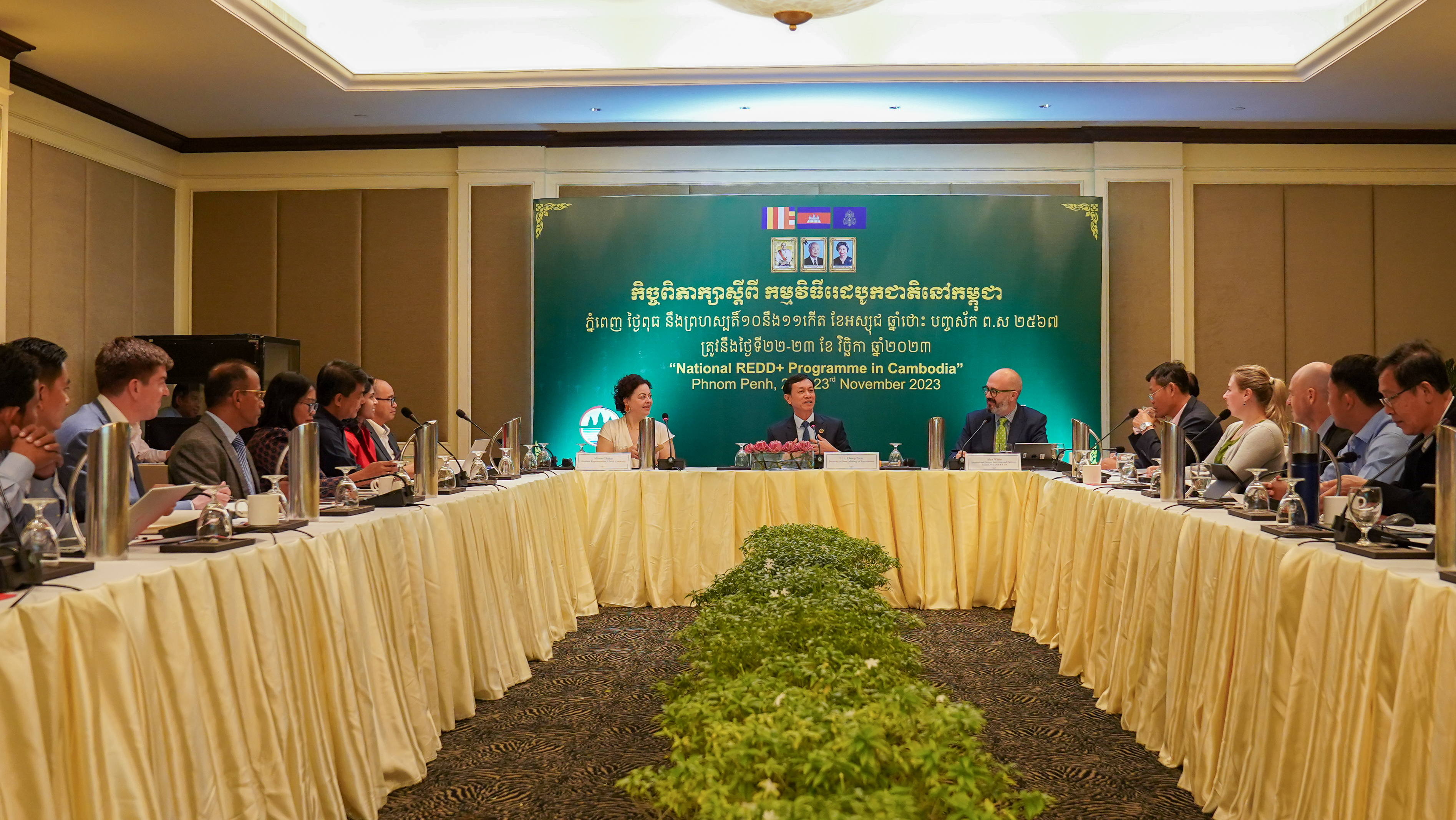Opening Remarks by Ms. Alissar Chaker, UNDP Resident Representative

- H.E. Chuop Paris, Secretary of State of the Ministry of Environment
- Delegation from the government of the United Kingdom
- Members of the REDD+ Task Force
- UNDP Colleagues
Ladies and Gentlemen
I would like to start by welcoming the delegation from the government of the United Kingdom and express our appreciation for our partnership to advance climate action in the forest and other land uses sector under the UNDP’s Climate Promise initiative in 10 countries and the UN REDD Technical Assistance programme in 13 countries. Thanks for providing support to Cambodia under both initiatives.
I would also like to recognize our national counterparts, in particular the REDD+ Secretariat and the National REDD+ task force, for our long-standing collaboration to promote sustainable forest and protected area management creating a strong linkage between forests and climate change.
Globally, up to one third of the greenhouse gases emissions needed to avoid the worst impact of the climate crisis can be provided by the forest and land uses sector. Cambodia in this sense is even more ambitious, as about 50% of the country’s reduction pledge in the Nationally Determined Contributions (NDC) comes from this sector. Forests are also at the center of Cambodia’s pledge to be carbon neutral by 2050.
Realizing these ambitious goals requires access to significantly scaled-up finance, and international carbon markets offer several opportunities to mobilize much needed investments. In this regard, Cambodia can be commended for achieving all the requirements under the four pillars of the REDD+ readiness phase in line with the Warsaw Framework and has already done well in terms of attracting carbon credits in the voluntary carbon markets. There is also progress in the implementation of Article 6 of the Paris Agreement, as signaled by the recent MoU with the government of Singapore.
UNDP has been proud to be a partner of the government throughout the readiness journey and is now happy to collaborate with the United Kingdom and other partners to support the country transition to the REDD+ implementation and result-based payments phases. In line with the emerging demands from the markets, focus of UNDP’s support is for Cambodia to promote high integrity of carbon credits.
In this regard, in partnership with the United Kingdom we are supporting the government in strengthening important and interconnected elements that can help unlock finance for the forest and other land uses sector and advance NDC implementation in an inclusive and sustainable manner. I know this will be discussed in detail during this workshop, but please allow me to provide a quick summary as it is important to highlight how our collaboration is promoting a comprehensive and integrated approach.
Strengthening the Measurement, Reporting and Verification (MRV) system, to ensure compliance with the transparency requirements set by the Paris Agreement.
Assessing how to strategically access carbon markets, striking a good balance between mobilizing climate finance for the sector and ensuring the achievement of the NDC targets.
Enhancing carbon market networking, through enhanced dialogue with non-state market actors, such as buyers, investors, brokers.
Contributing with vital information to implement a Piloting of the Nested Framework, along the UN REDD Technical Assistance programme, which will send a strong signal to national and subnational stakeholders, project proponents and potential investors that Cambodia is committed to producing forest carbon credits of high quality.
Ensuring effective and transparent benefit-sharing mechanisms, and upholding and implementing safeguards, which are key to promote local socio-economic development in areas targeted by REDD+ projects.
In connection with the last point, I must highlight that Indigenous People and local communities are the key knowledge holders and custodians of the forests, and are agents of change. It is therefore essential to advance a socially inclusive approach to climate action and finance that harnesses their role in forest solutions.
Promoting community-based natural resource management has been a key pillar of UNDP’s programme in the country. For example, just last year our UNDP-GEF Small Grants Programme partnered with local NGOs/CBOs and authorities to enable about 15,000 people to lead 14 Community Forestry (CF) and 24 Community Protected Areas (CPA) initiatives, which resulted in the protection and sustainable management of 14,427 ha of CF forest areas and 146,257 ha of CPA forest areas. I am happy to know that the delegation will visit one of the projects targeting Indigenous People on Friday.
We highly appreciate our collaboration with the United Kingdom to advance these efforts, in particular to strengthen the roles and engagement of Indigenous Peoples, especially women and youth, in the implementation of the targets for the FOLU sector in the NDC, as well as expand and scale up Indigenous People-led forest measures.
Let me conclude by wishing you a productive discussion and successful mission, with the hope it will further consolidate our partnership to advance Cambodia’s interconnected development and climate agenda.
Thank you.


 Locations
Locations




